Thanks Sluts, You're My Heroes!
Let’s talk about the word slut.
For a lot of us, it stirs up a cocktail of feelings—some juicy and empowering, some a little tender and raw. It’s been hurled at us as an insult, whispered in shame, and, in more recent years, reclaimed with pride. These days I can call myself a slut with love because it’s the kind of sluttiness that’s chosen, owned, and worn like a shiny badge of honour. Yeah, I’m a slut. So what?
Well, let’s not pretend it’s always been sparkles and orgasms. As a queer, cis woman, I know slutting around has meant dancing through a minefield—especially for trans, femme, and other marginalised babes—because this world was built to police our pleasure.
So let’s unpack the past, spill some truth, and honour the sluts who came before us.
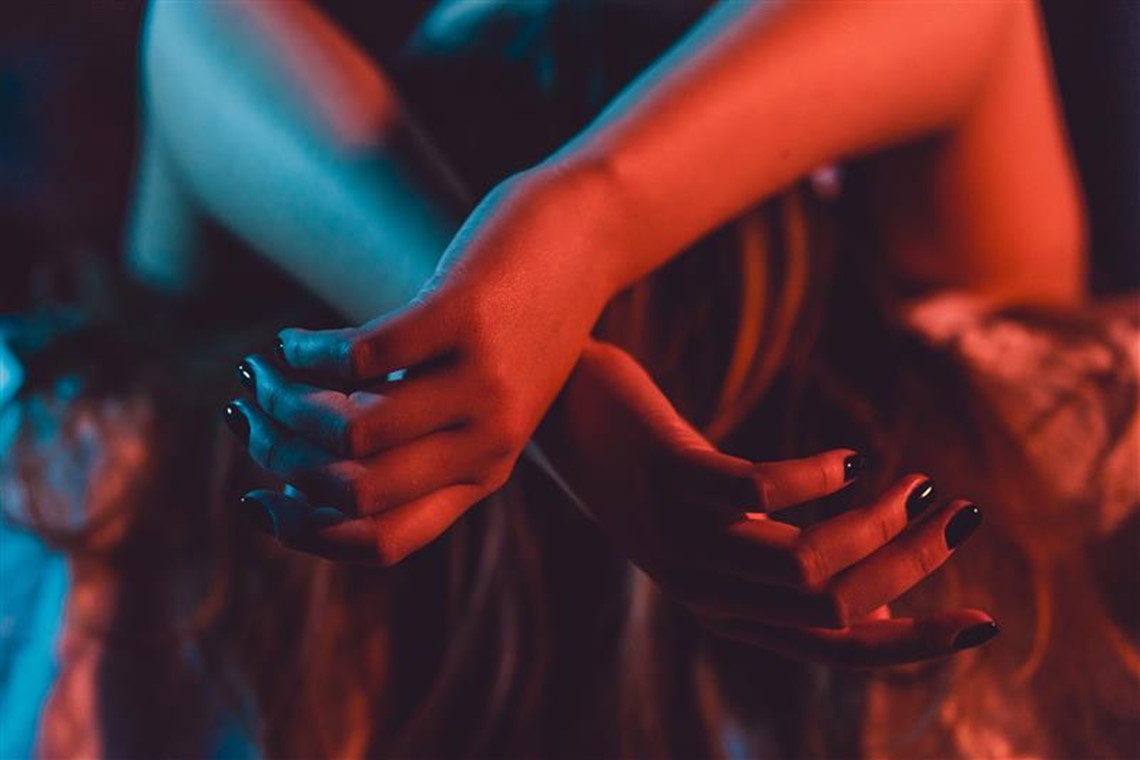
A Word Built to Bruise (That We Made Our Own)
By now, we know that slut has its misogynistic roots back in the 1400s. Created as a gendered missile aimed straight at women’s choices, bodies, and visibility; it was designed to define and shame not just behaviour, but as an all-out attack on their character.
And guess what? There’s a pattern here.
The venn diagram of homophobia and misogyny looks an awful lot like one big circle. The condemnation of women and the demonisation of effeminate or sexually expressive queer men are two sides of the same uptight coin and both come back to a discomfort with femininity, and the desperate need to control it.

But women and queers have made an art form out of understanding the power of language and flipping the script. Slurs become slogans. Shame becomes shine. And slut is no exception.
In the post-Stonewall era, and especially during the sexual revolution of the 1970s, gay and bi men (already copping it just for existing) were like, fuck—if we’re going to be judged anyway, we might as well enjoy ourselves. Sluttiness wasn’t something to hide, it was something to celebrate. Bathhouses, sex clubs, cruising — they weren’t just about getting off (though, yes please), they were about finding each other. Building community. Visibility. Resistance. Calling yourself a slut became a power move—a way to laugh in the face of heteronormative finger-wagging.
Read more on the power of words and flipping the script here:
Why Straight People Shouldn't Throw Around the F-Word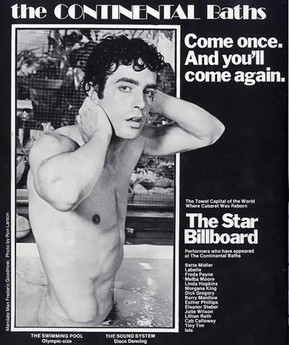
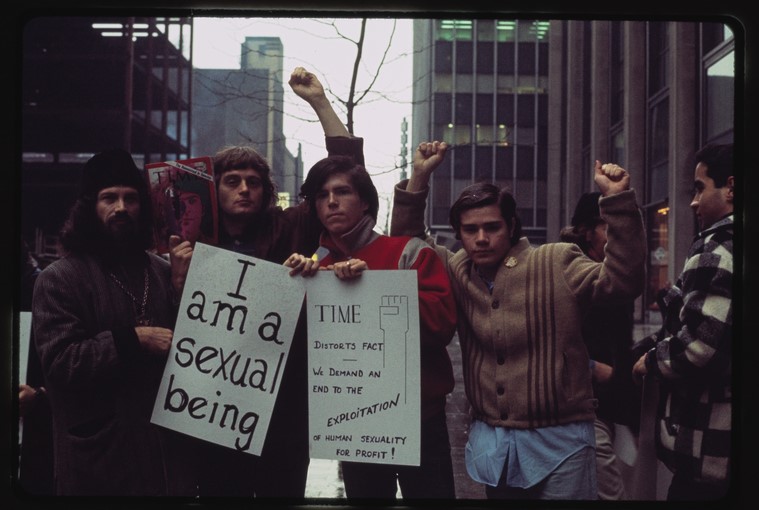
Queer Desire Complicates and Expands the Conversation
As a queer woman, the term slut is loaded. It's baggage and possibility, trauma and triumph, all rolled into one decidedly complicated package. Slut-shaming is still rampant. I mean you don’t have to dig deep to see the enduring double standards. Taylor Swift’s dating life becomes a global conversation, while Leonardo DiCaprio’s revolving door of models is barely questioned. Monica Lewinsky gets shamed for a consensual relationship. Bill Clinton? Golf claps and book deals.. The rules aren’t just unfair—they’re stacked.

And then there’s the special concoction of homophobia and misogyny I’ve personally been served. Like when men leer as I kiss another woman or hold her hand in public, assuming we’re doing it for their gratification. Gross.
Even in queer spaces it can sneak in, with femme-presenting folks being told they’re too much or trans women and nonbinary babes being hypersexualised or dismissed.
The imbalances can be exhausting.

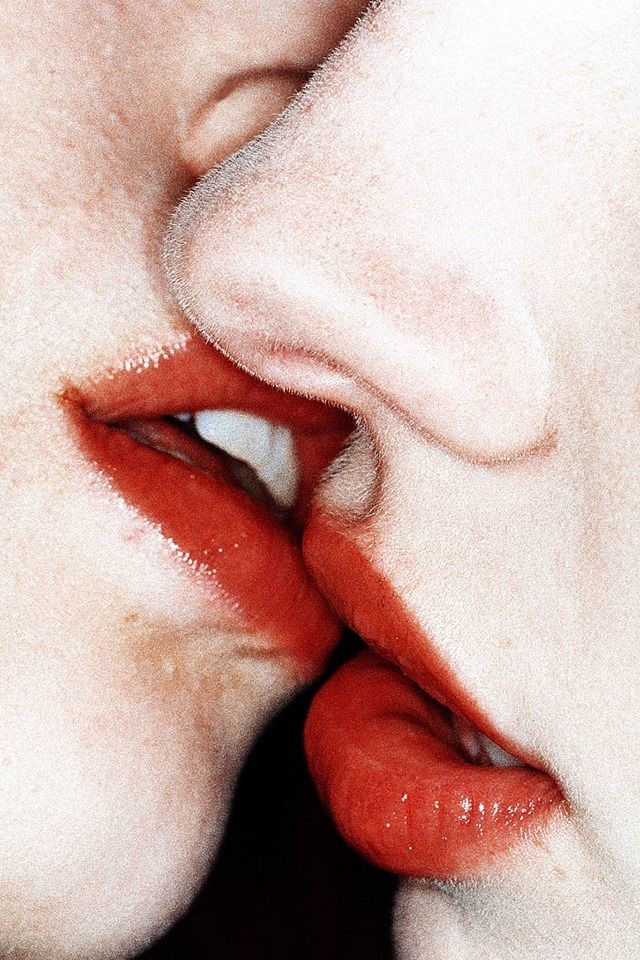
Sluttiness is survival. And it’s sexy AF.
Thankfully we also don’t have to look far to see women and queers of all kinds doing what we’ve always done to survive — alchemizing shame into magnificently expansive expressions of rebellion and resistance.
Think about it. When Cardi B and Megan Thee Stallion dropped WAP, the pearl-clutching was immediate. People weren’t just shocked by the lyrics, they were threatened by the confidence, the control, the sheer joy these women took in their own pleasure.
Same with Kim Petras’ Slut Pop—a thumping, explicit electro-pop love letter to sluttiness made by a trans woman and played on repeat across queer dancefloors. It’s camp, it’s provocative, it’s a middle finger dipped in lube.
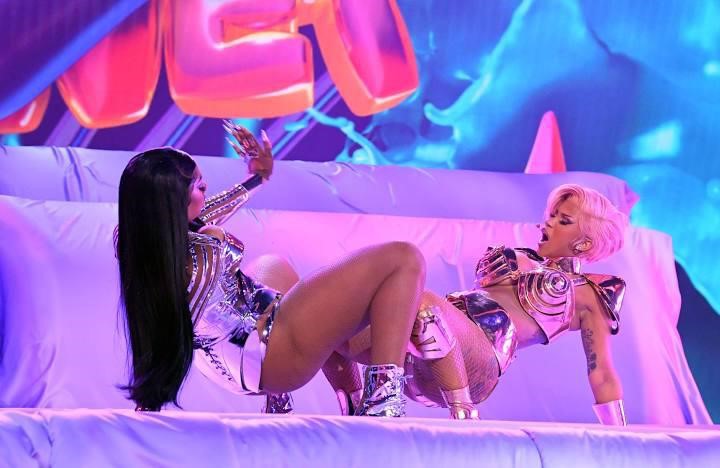
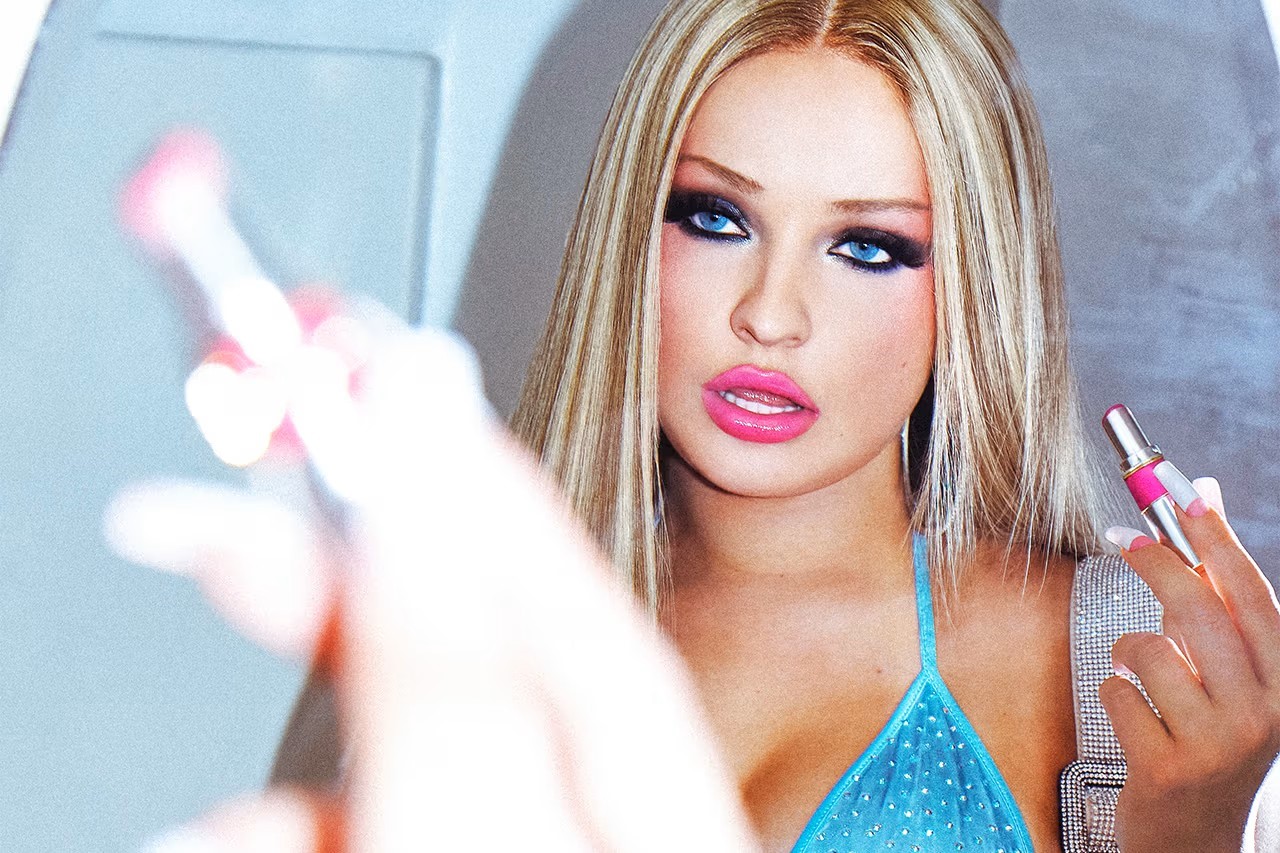
It’s camp, it’s provocative, it’s a middle finger dipped in lube.
Sluts come from a long line of rebels.
Way before Cardi B and Megan Thee Stallion made social conservatives squirm with their deliciously filthy lyrics, ’90s Riot Grrrls like Bikini Kill frontwoman Kathleen Hanna were emblematically scrawling SLUT across their stomachs in sharpie, screaming into microphones, and turning zines into manifestos. Loud, political, messy, and gloriously unapologetic they were burning down the idea that femininity had to be soft, palatable, or silent.
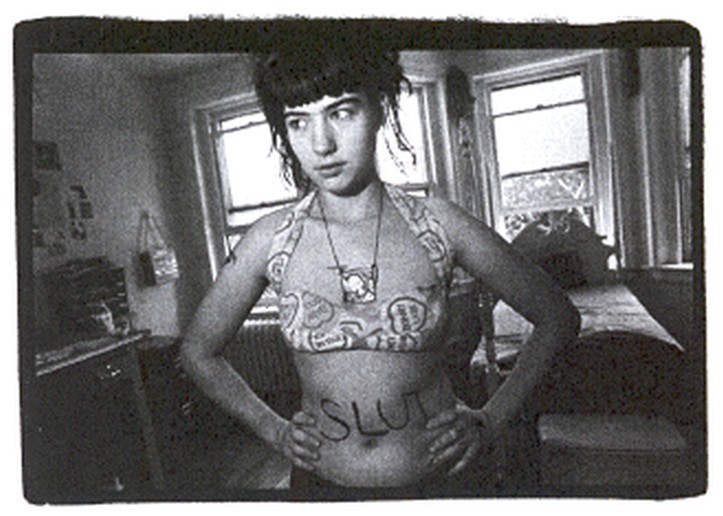

“When she talks, I hear the revolution”
Not only did Riot Grrrls crack the door wide open for a new generation of sluts, they laid the groundwork for movements like SlutWalk, which began in 2011 after a Toronto police officer suggested women should avoid dressing like sluts to prevent assault (eye roll). Queers, femmes, survivors, and allies took to the streets in heels, boots, lingerie, and whatever the hell they wanted, to say: our bodies are not battlegrounds, the way we dress, behave, or fuck does not invite violence—and we are not the ones who need to change.
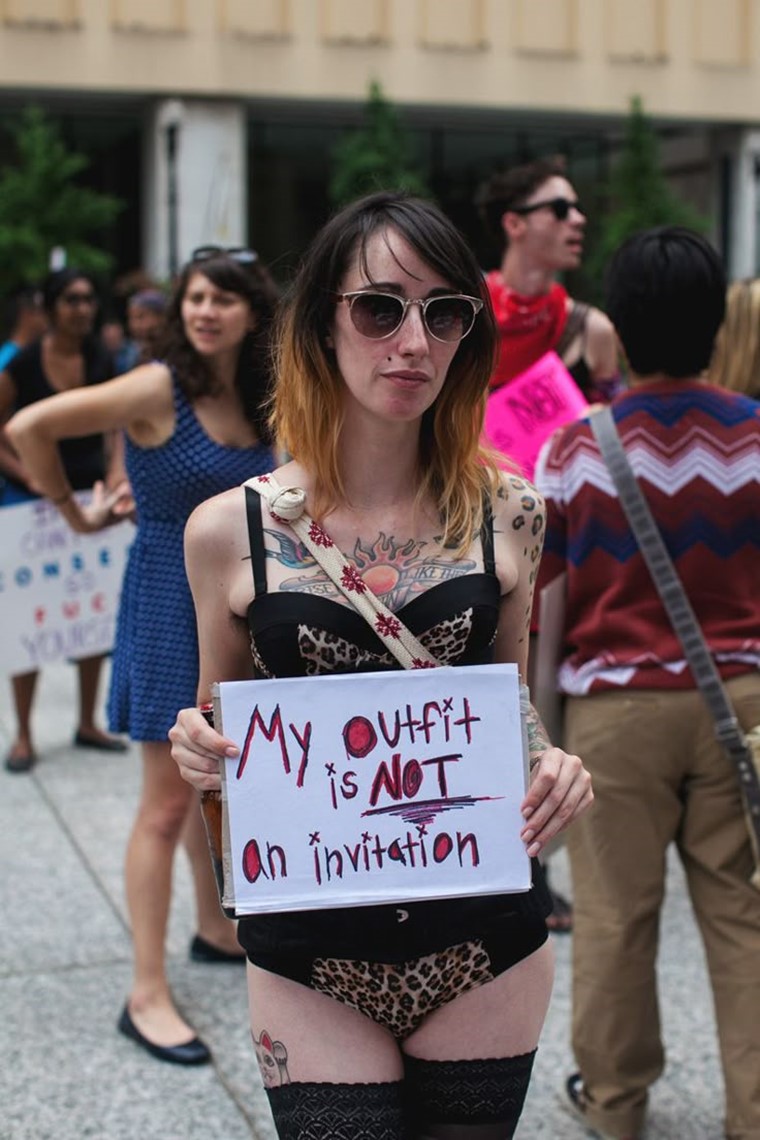
And sex workers?
Well they’ve always been there leading the resistance. Pushed to the margins by patriarchy, racism, capitalism and colonialism, they still stood tall—fighting for bodily autonomy, better working conditions, STI prevention, queer visibility, and the simple right to exist without shame or criminalisation.
And here in Aotearoa we did something radical. In 2003, thanks to the relentless activism of sex workers (especially Māori, trans, and migrant workers), we became the first country in the world to fully decriminalise sex work and it remains a global gold standard for human rights-based legislation.
Decriminalisation isn’t just policy, it’s protection. It says: Your work is work. Your safety matters. Your life is valid.
So when we talk about being sluts as resistance we’re not just being cheeky. We’re standing on the shoulders of people who’ve risked everything to make space for sexual autonomy, care, and survival.
Find out more about our take on sex work here:
Rewards & Casual Sex Work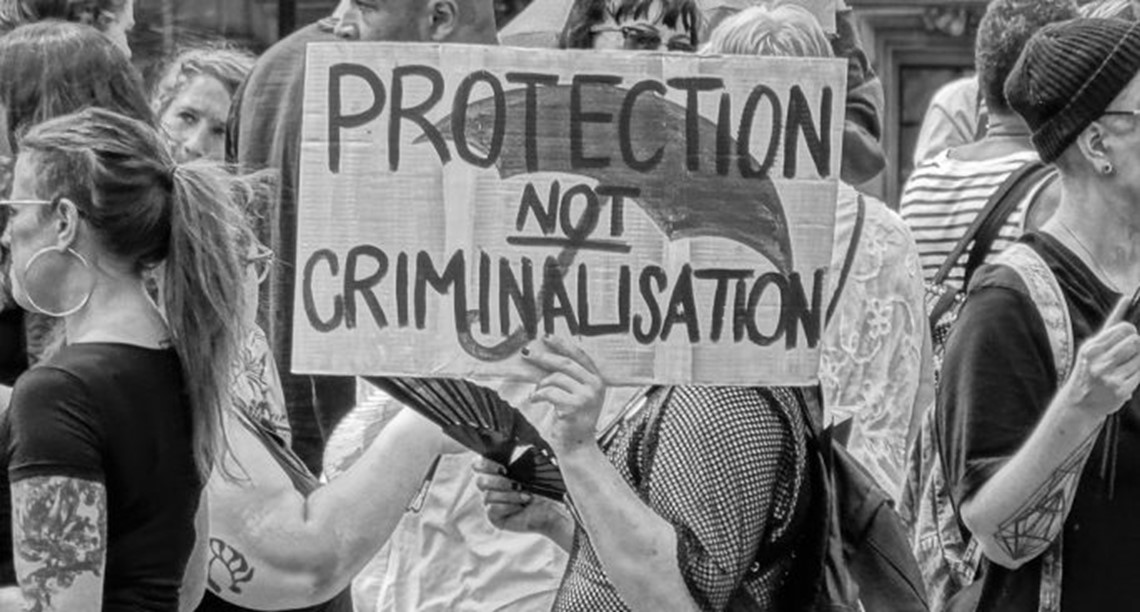
Slut Is Community. Slut Is Celebration.
When we say slut with love in our mouths, we’re saying YES.
Yes to queer rebellion.
Yes to consensual, deliciously unbothered sex.
Yes to bodies that feel like home—not battlegrounds.
Yes to DoxyPEP, lube, butt-plugs or whatever else you’ve got in that go-bag of slutty essentials.
We’re saying - this word doesn’t get to hurt us anymore.
And that’s what makes it powerful. Not in spite of its history, but because of it.
Remember consensual sluttiness is a must!
When Can He Call Me A Dirty Fucking Slut?
Queer icon Michelle Tea wisely once offered this advice to aspiring sluts:
"Look towards other people who live shamelessly ...find your slutty icons, your people who lived with a bit of abandon, and let them be your ancestors, your chosen ancestors, or even your current heroes."
Well, consider this your permission slip! Go be the slut of your dreams. Keep being loud, soft, kinky, loving, messy, complicated, consensual, careful, and free.
The world needs you! x



